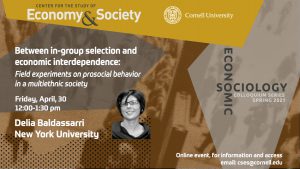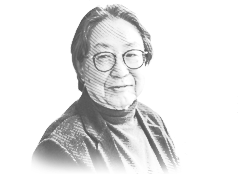Delia Baldassarri, NYU
Between in-group selection and economic interdependence: Field experiments on prosocial behavior in a multiethnic society
- 12:00 - 1:30 PM
- via Zoom

How does prosocial behavior extend beyond in-group boundaries in multiethnic societies? Recent waves of immigration in Western societies have led scholars to conclude that ethnic heterogeneity undermines trust, social capital, and collective goods provision. However, the type of prosociality that helps heterogeneous societies function is different from the in-group solidarity that glues homogeneous communities together. The interdependence and division of labor of life in contemporary urban settings often forces people outside the comfort zones of their familiar networks to constructively interact with unknown, diverse others. Using a large-scale lab-in-the-field experiment with representative sample of Italian natives and immigrants from the metropolitan city of Milan, we study behavior toward coethnics and non-coethnics in strategic and non-strategic interactions. We find that when given the opportunity to select their interaction partners, Italians favor coethnics over immigrants. However, when forced to interact with non-coethnics, as it happens in many economic transactions, Italians generally treat them similarly to how they treat coethnics. They also value signs of social and market integration. Taken together, these results contribute to make sense of the persistence of discriminatory behavior toward minorities in selection processes, as well as confirm contact theory intuition that interaction with outgroup members, especially when individuals have common goals and equal status in the interaction, is likely to foster prosociality.

